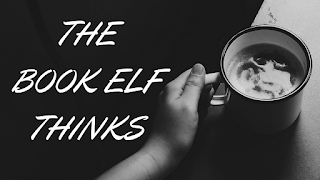ASIN :B077P94B2V
Genre: Anthology / Poetry
Publishers: Amazon
Price: Rs. 49/- ( I got the book for review from the author)
Behind the Book
Some relations
are like an old sweater;
often too worn out
to be revived,
but too precious
to be replaced.
This book is a collection of simple, heartfelt and inspiring poetry, conversations and musings that celebrate ordinary life with all its imperfections, sorrows and little joys. It explores the themes of love, life, grief, depression, self-actualization and personal growth through the lens of an introvert who uses writing as a preferred way of communicating with mankind. The vignettes are divided into sections of loving, losing, hurting, surviving, conquering, on living today and on writing. Coffee, the ultimate companion, represents the breaks we take from experiencing life to write about it.
About the Author
A Mumbai-based Young Adult and Contemporary writer who has a weakness for peaceful getaways, beaches, books and scarves. Her debut novel "The Guest" was published on 25th May, 2016 by the renowned writer Ravinder Singh's publishing venture Black Ink.
This was a perfectly timed read for me! Poetry has a strange way of soothing my soul and this book just left me craving for more. This coffee is brewed to perfection and ensures nirvana in every word (read: sip)!
The poetess Mitali Meelan has a way with words undoubtedly as it was clearly visible in her debut novel. But the way she brings forth the deepest of human emotions in these snippets is completely mind boggling. With a deep sense of poignancy lingering across the poems, they talk about love, loss, longing, existential crisis and a lot of things that come together to define life.
Neatly divided into seven topics namely On writing, on loving, on losing, on hurting, on surviving, on conquering and on living today, the poetess weaves a string of words that sound like music in those pages. Her poems written across these topics have a certain honesty that reflects in each one of them. They compel the reader to ponder and introspect.
The book is a light, short and crisp read making it a perfect reading companion for people on the move. The poems for me were like chicken soup, something that I am sure I will keep going back to whenever I am in need of some "soul food".
Strongly recommended for all poetry lovers, this one is a truly heartwarming read that should not be missed!
Foodie Verdict
This book is like Coffee Rasogulla- uniquely different and yet reminiscent of all the goodness of the world!
 |
| Source: instagtrends.com |

